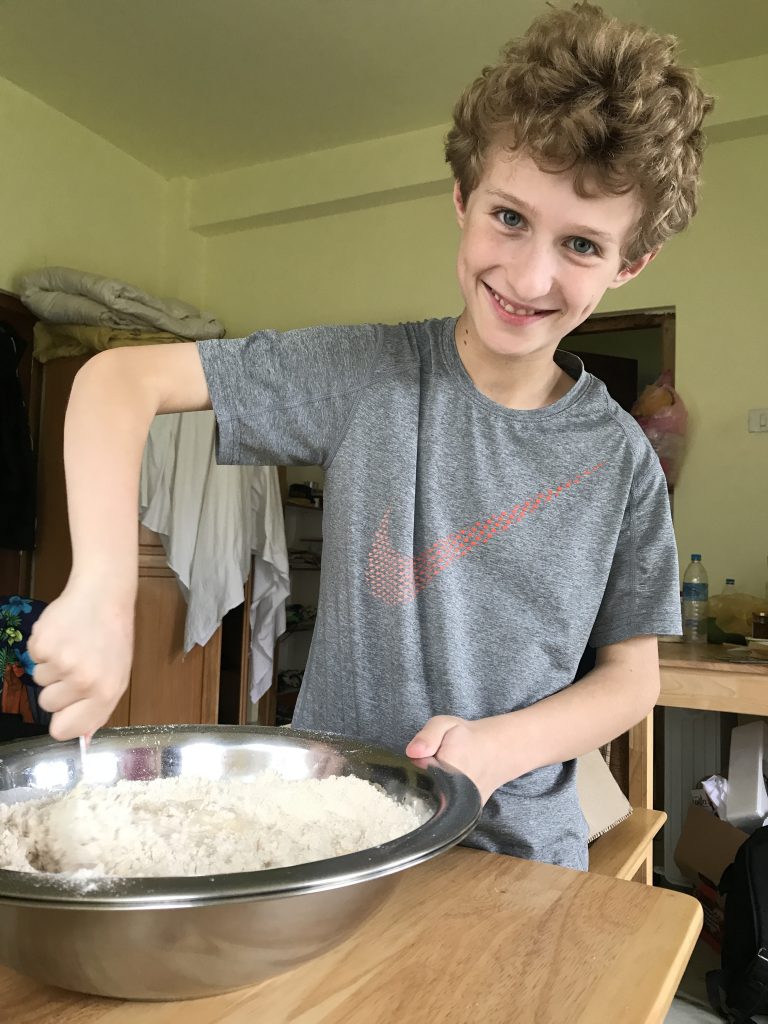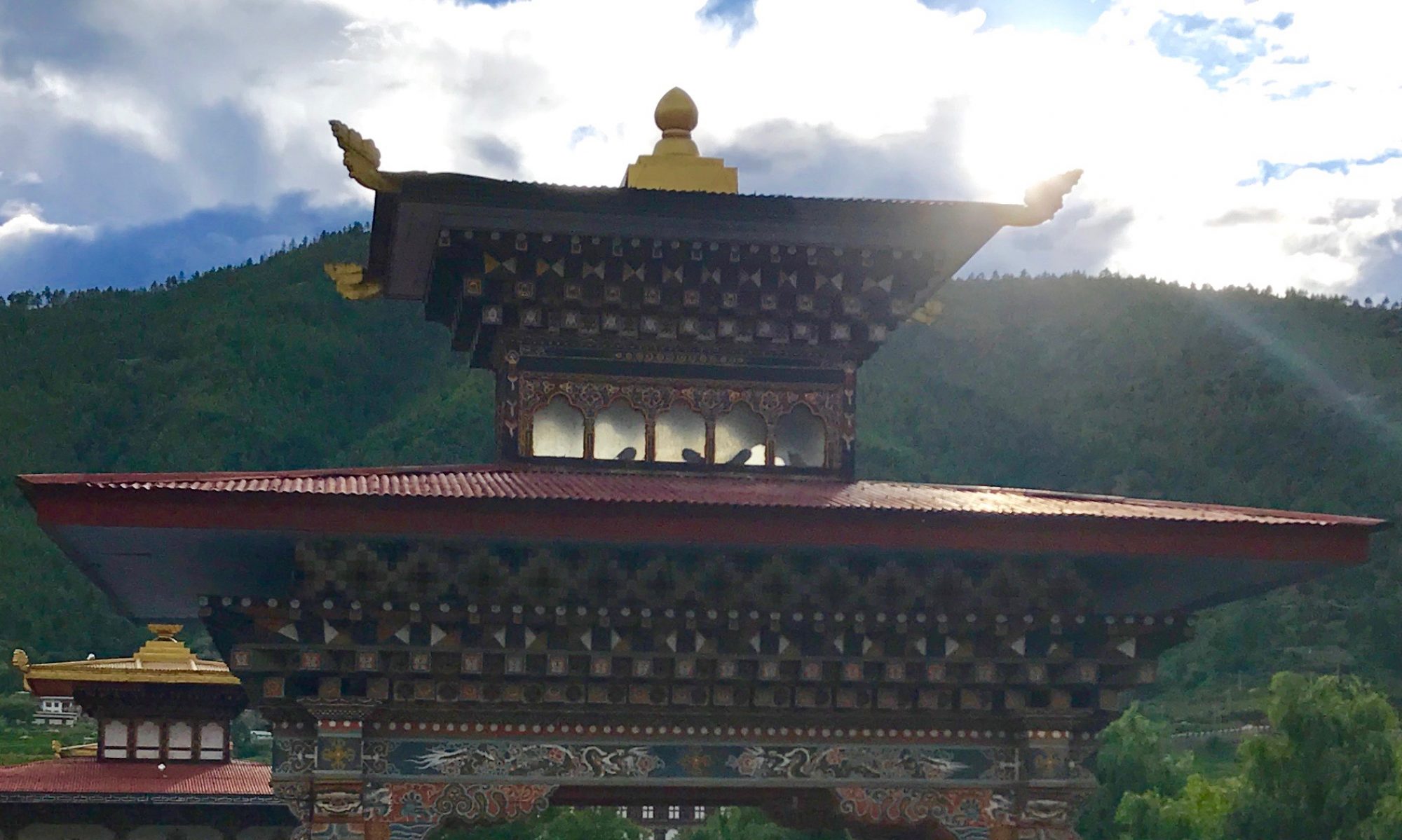It feels as if we’re beginning to settle into a kind of a rhythm as we come to the end of our first month in Bhutan.
We admire the painting on a nearby chorten: each of the four sides feature different Buddhist figures.
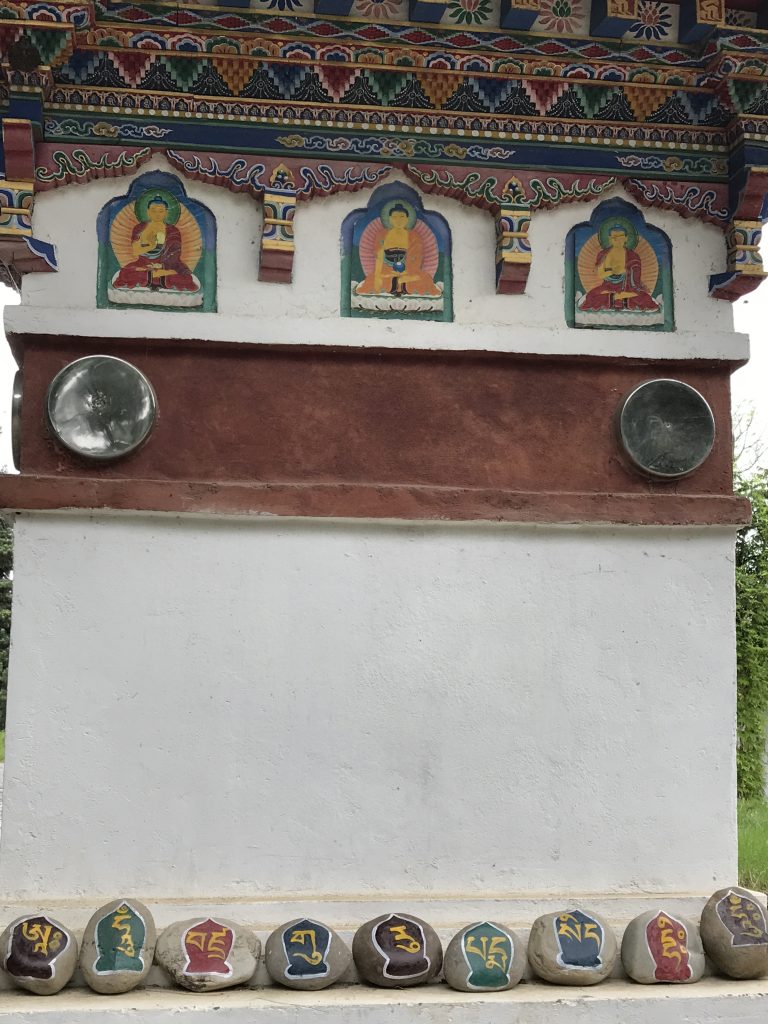
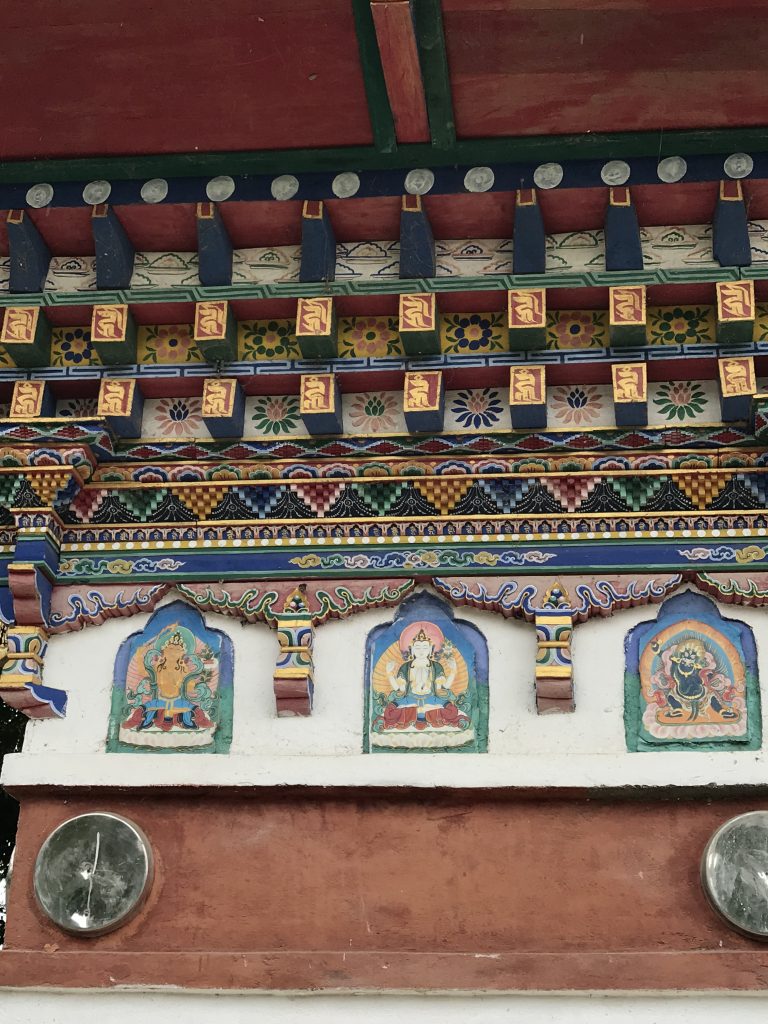
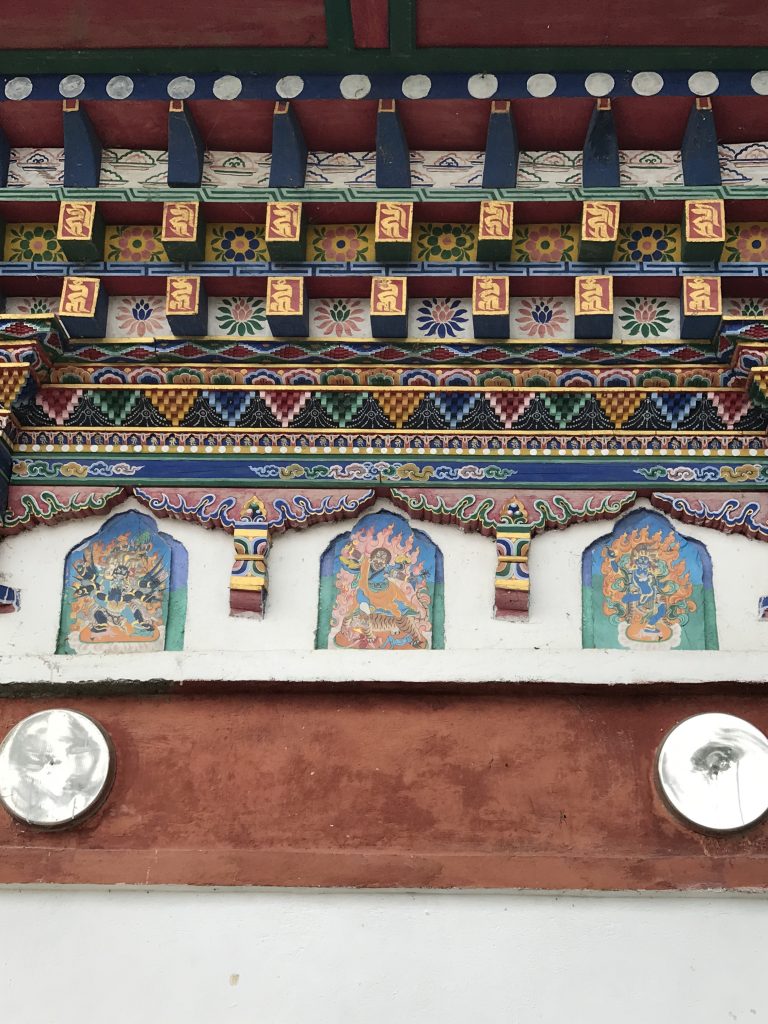
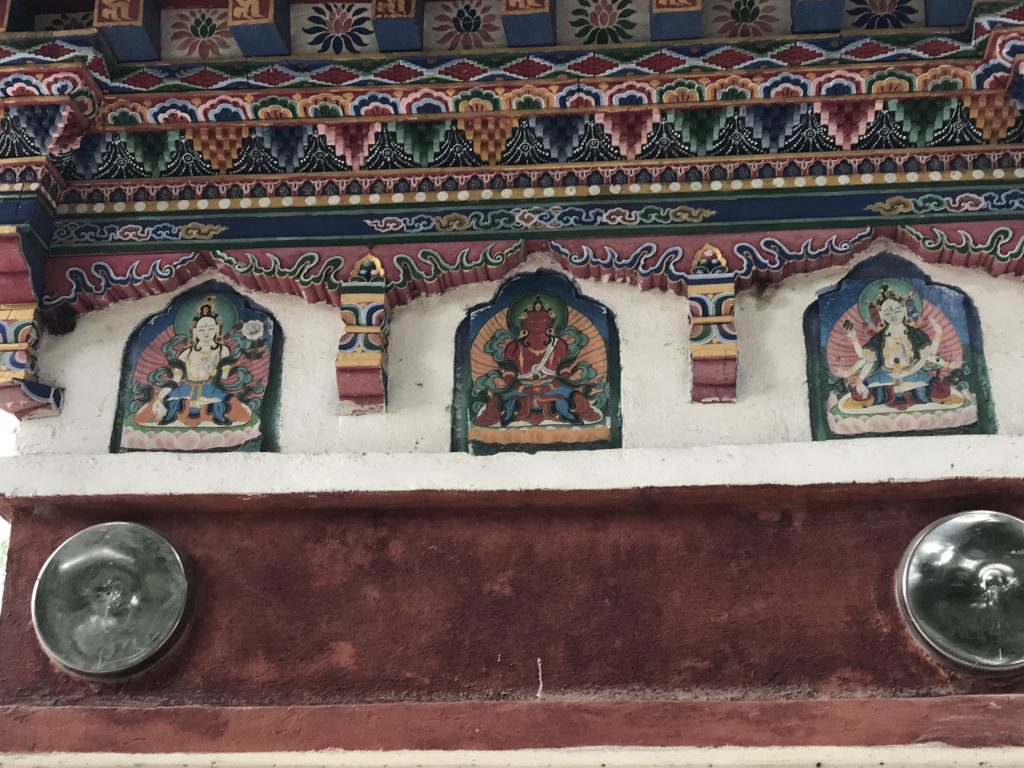
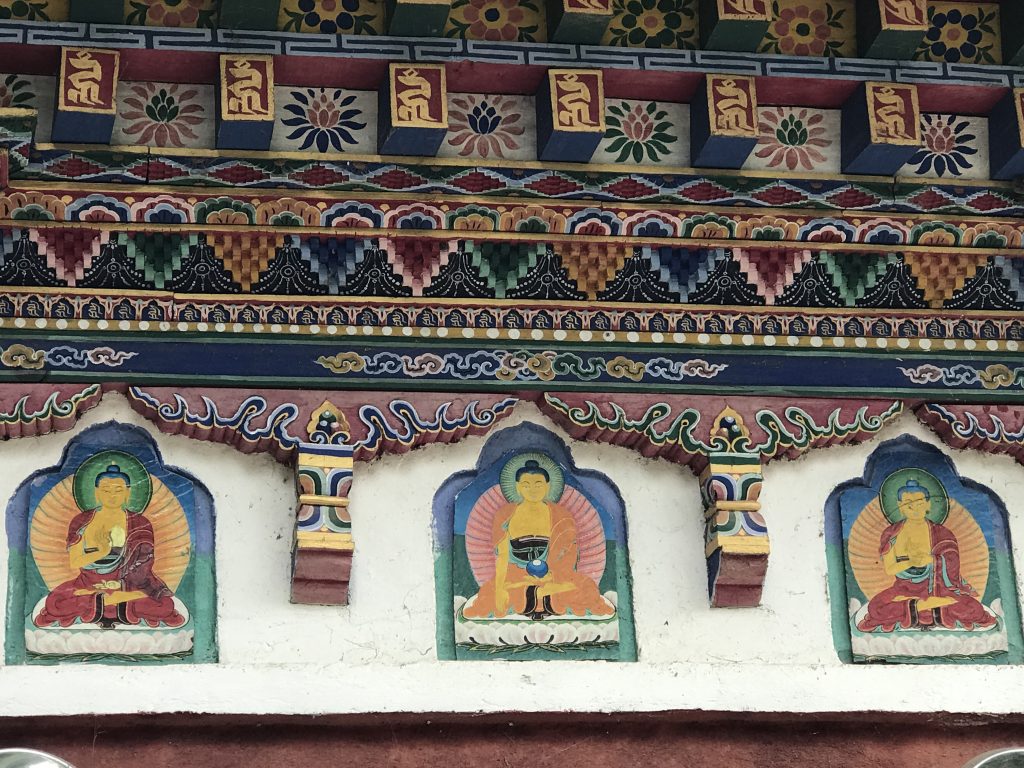
Zoë and I mix and match kiras (the skirts), tegus (jackets), and wanjus (shirts) to get the most out of our shared wardrobe.
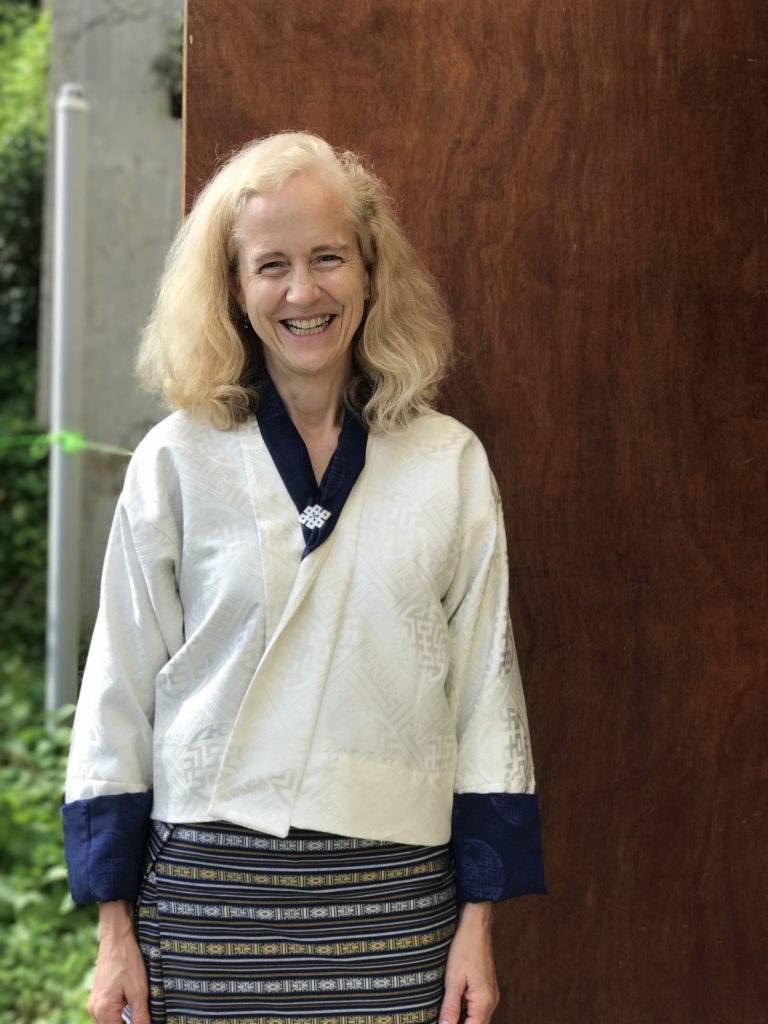
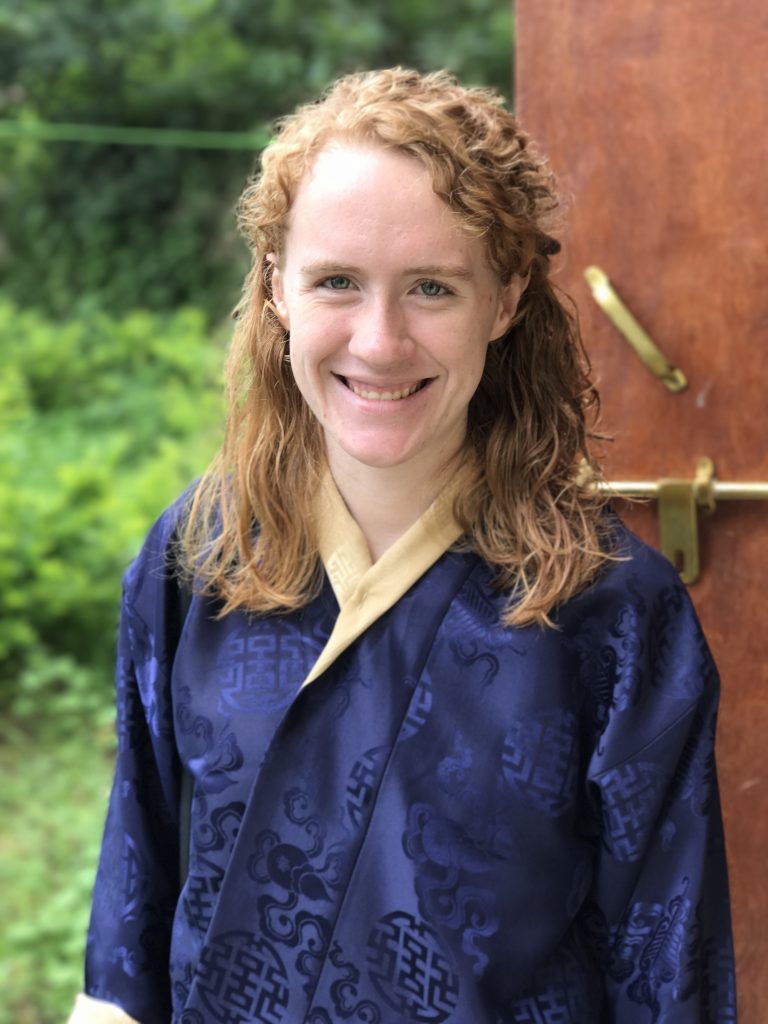
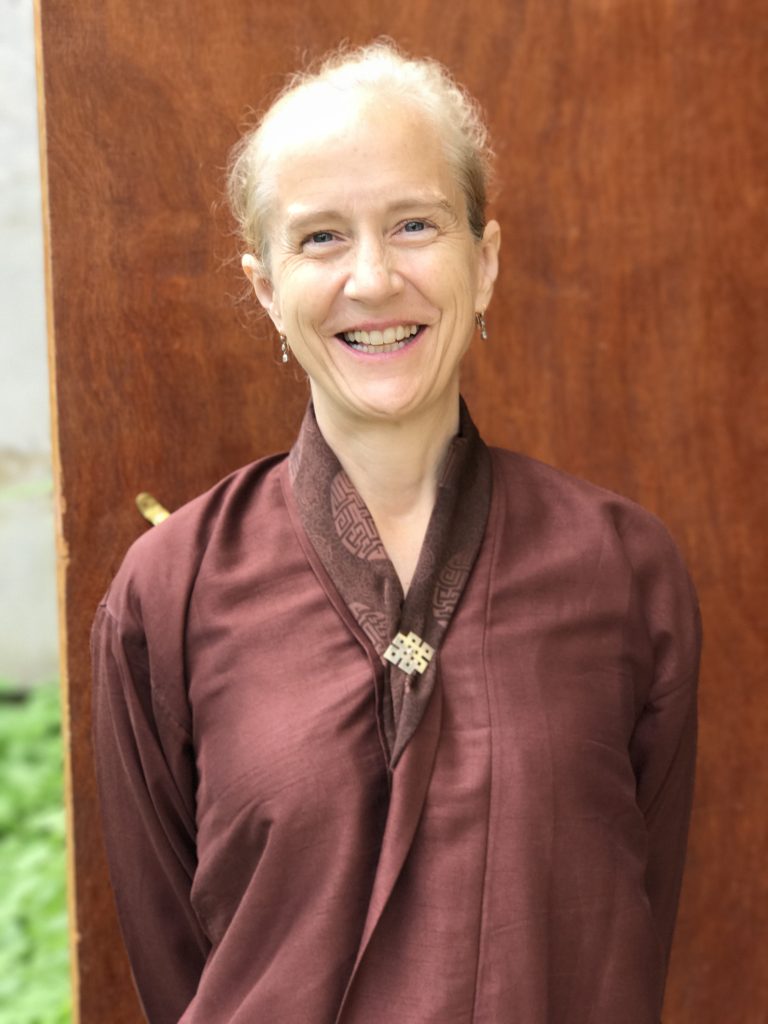
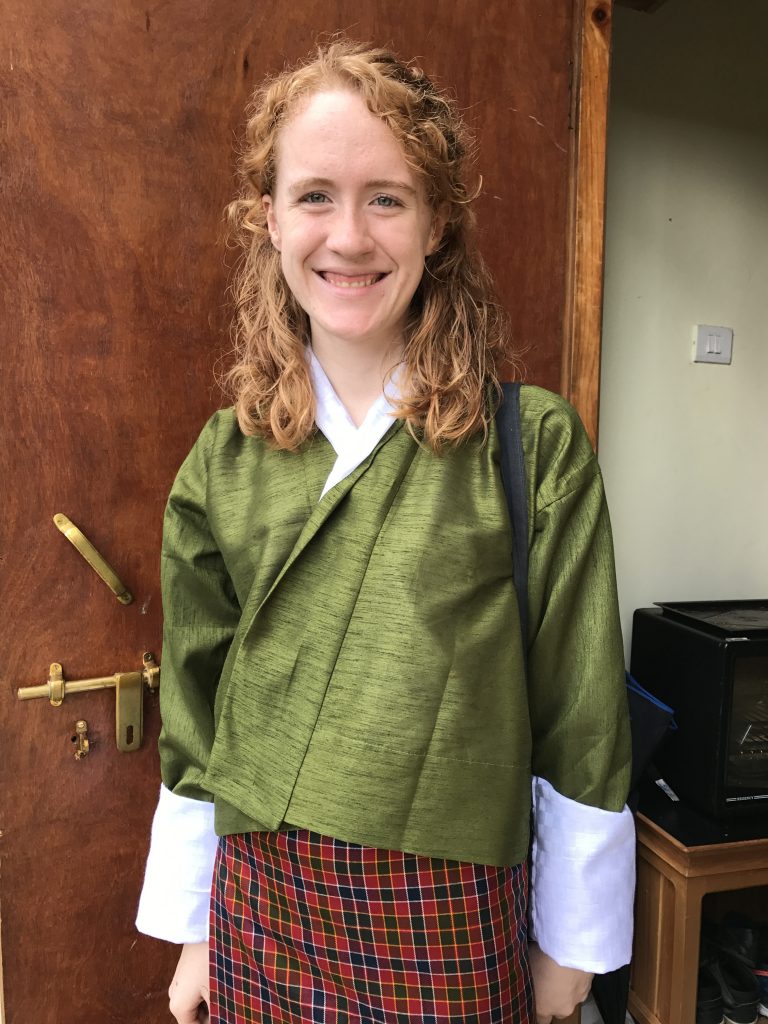
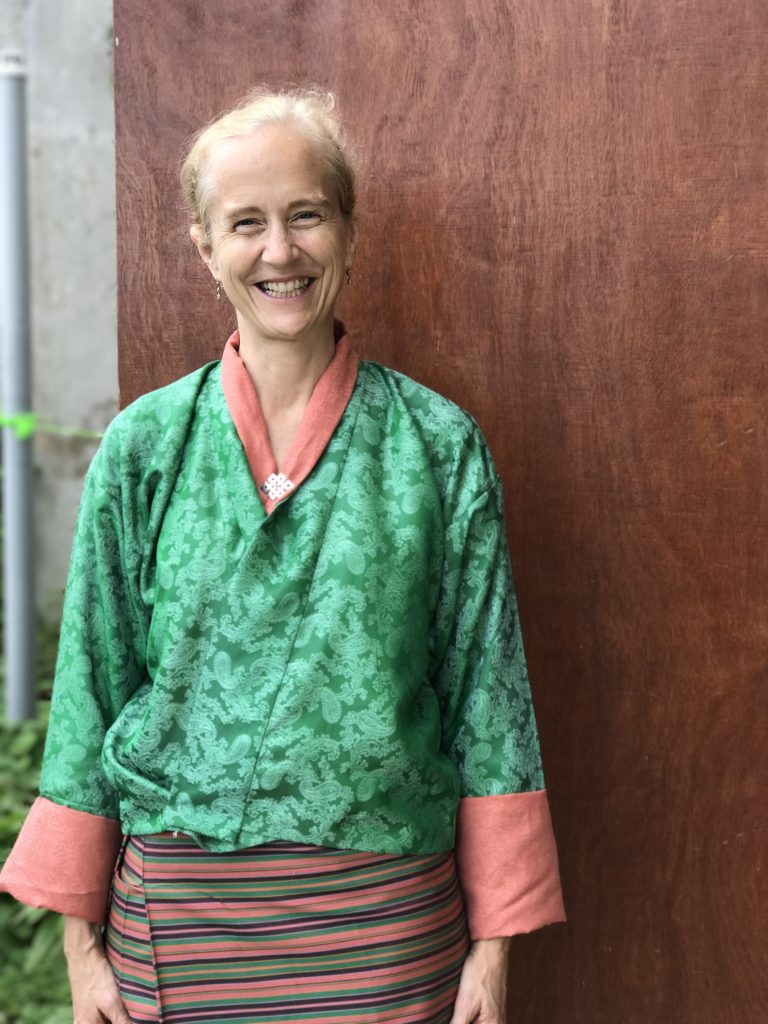
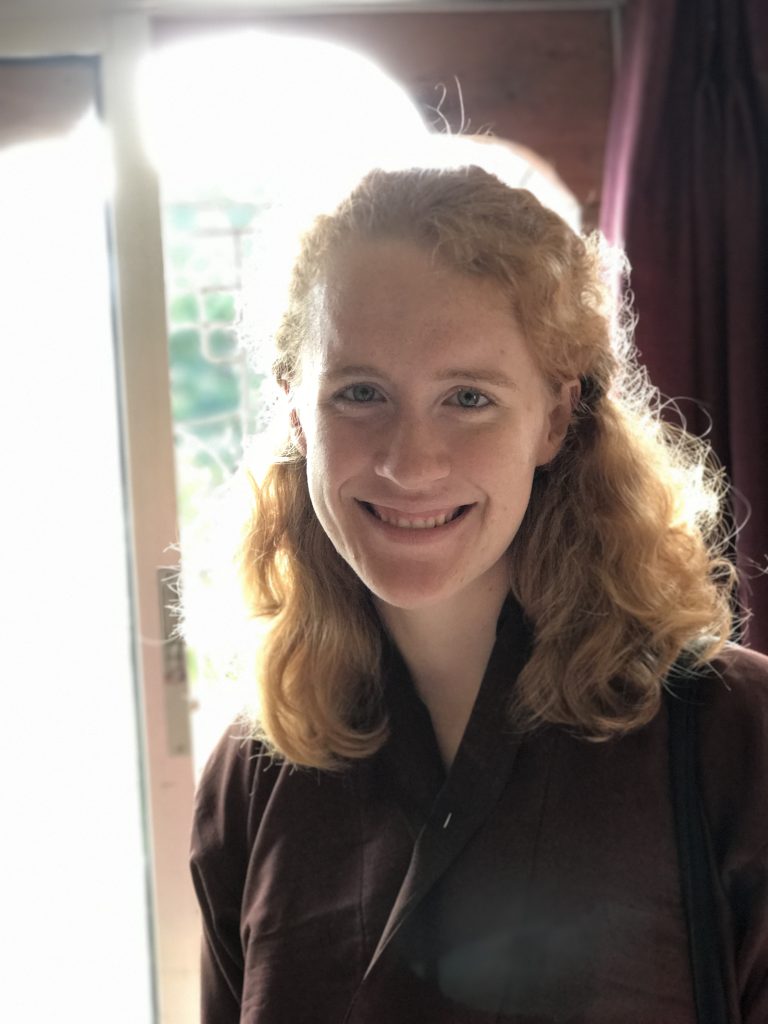
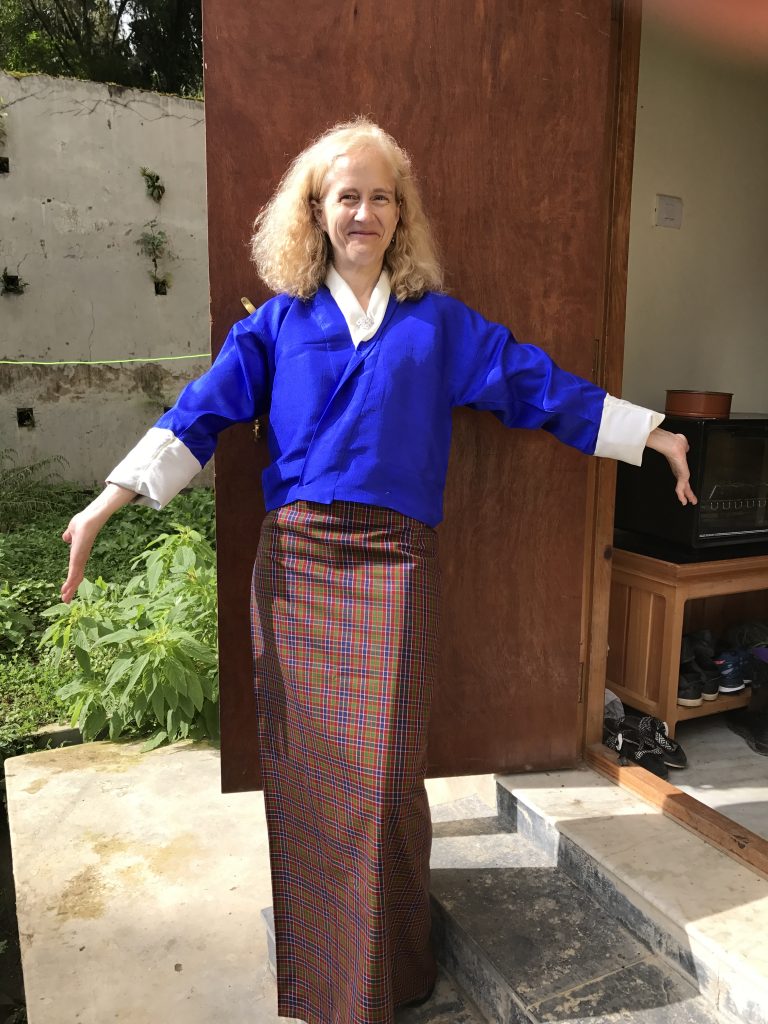
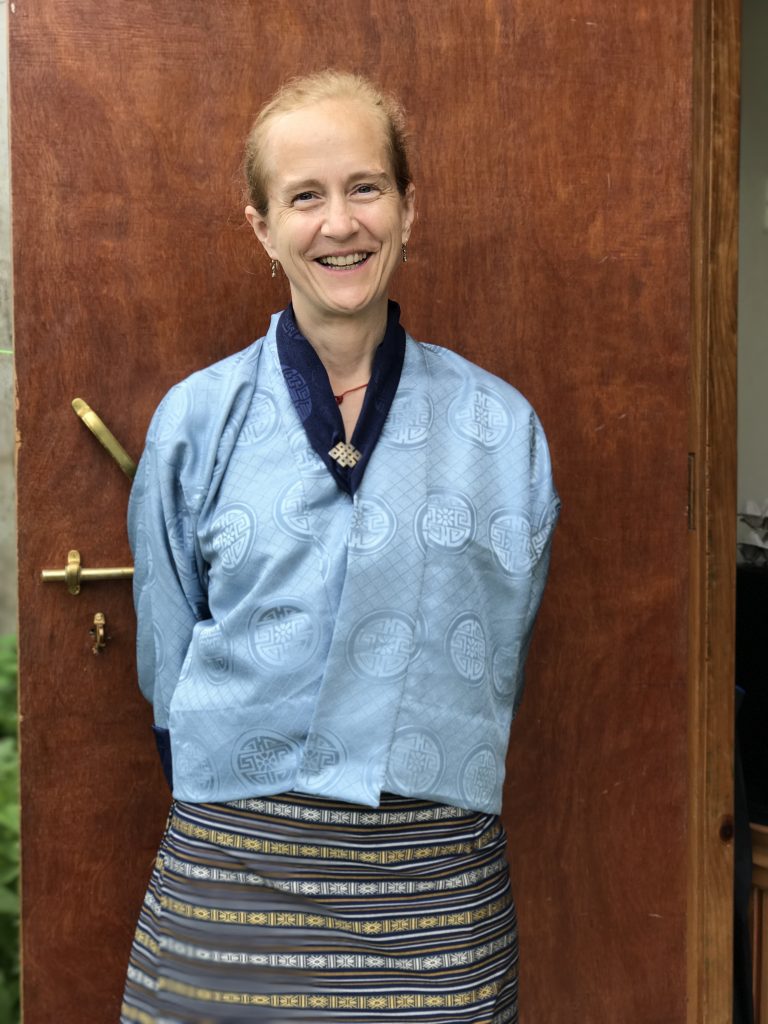
Jeremy goes off to school.
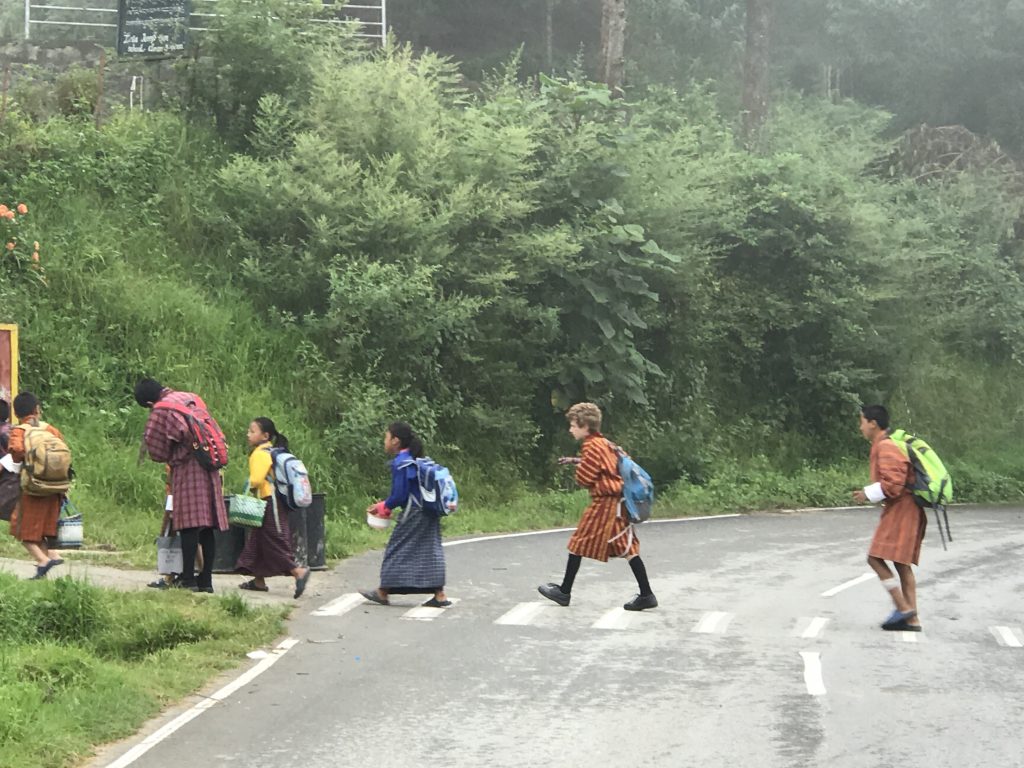
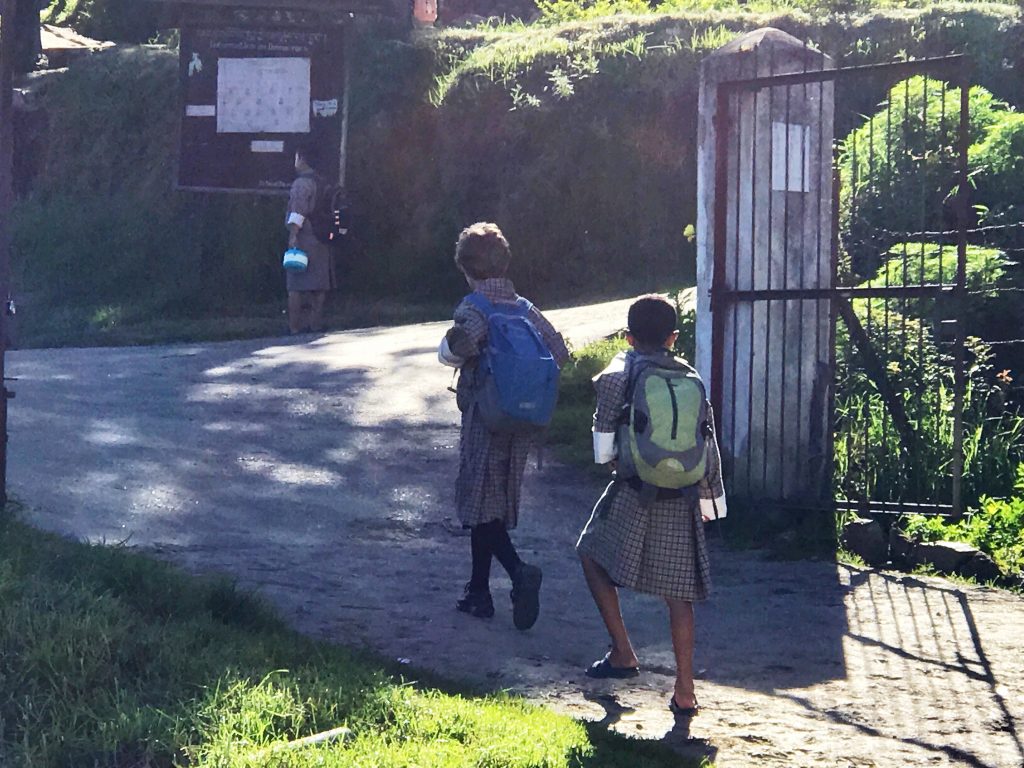
This is his nominal schedule: 1st period Math, 2nd period Dzongkha, 3rd period English, 4th period English, 5th period Science. He comes home at lunch. He says that teachers are present more than on his first day, but many still miss 10-20 minutes of every class.
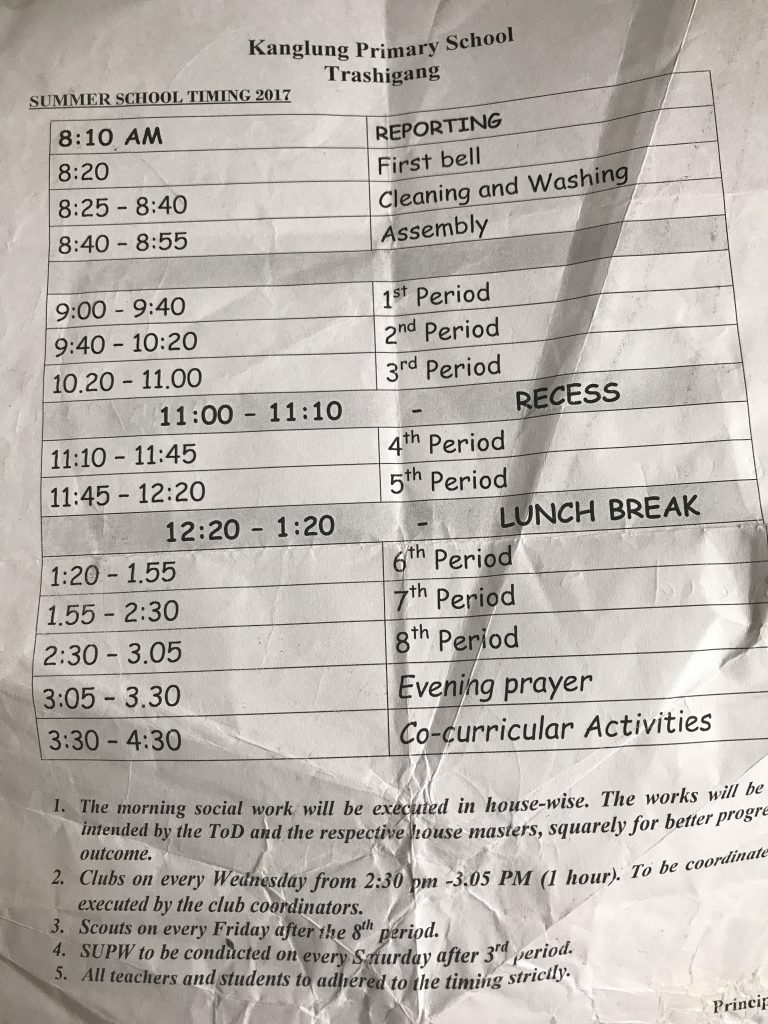
Zoë goes off to school. Jeremy’s English teacher tells Zoë that the school is “child friendly,” which in context seems to mean that they don’t engage in corporal punishment. Meanwhile, on the desk behind him is a stick–smaller than the bamboo used to hit children a few days earlier–presumably left by the Dzongkha teacher, who has class just before English.
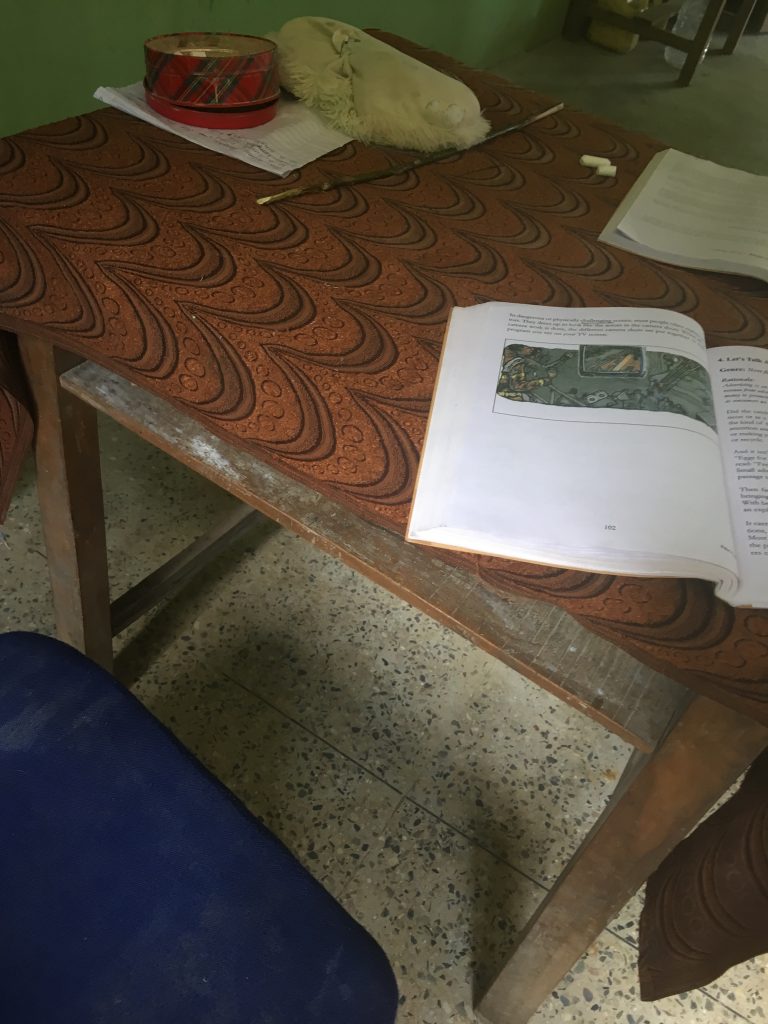
None of this negates the fact that I really liked all the teachers when I met with them for the “Small Teaching” workshop. And James had a conversation with a colleague who felt that Bhutan had moved too far from its past traditions, including corporal punishment. (“It was good enough for us!) I imagine all of the teachers in the Yonphula program grew up with corporal punishment. Most of them are far from their families, and one mother received a text at 11 p.m. from the teacher of her six-year-old daughter, explaining that the teacher’s hand had slipped while administering a “spanking” and this left marks on the little girl’s leg. My student was as upset on behalf of her daughter as I would have been. This all makes me wonder how the shift away from corporal punishment was accomplished in the USA.
Meanwhile, Jeremy learns to do his own laundry.
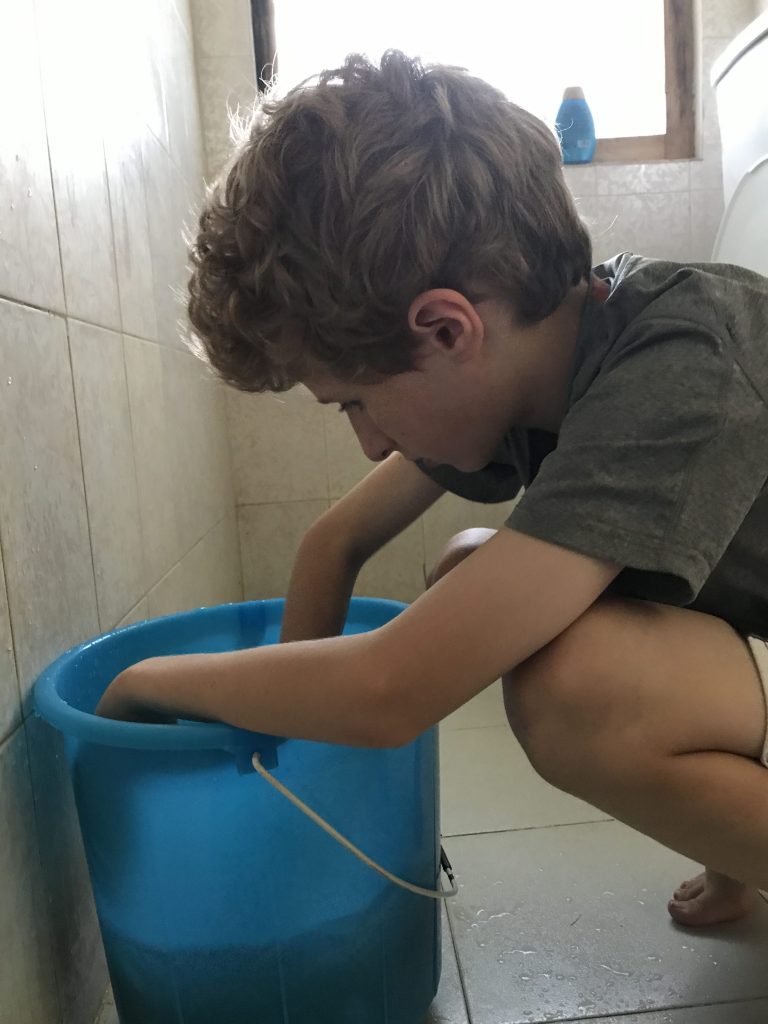
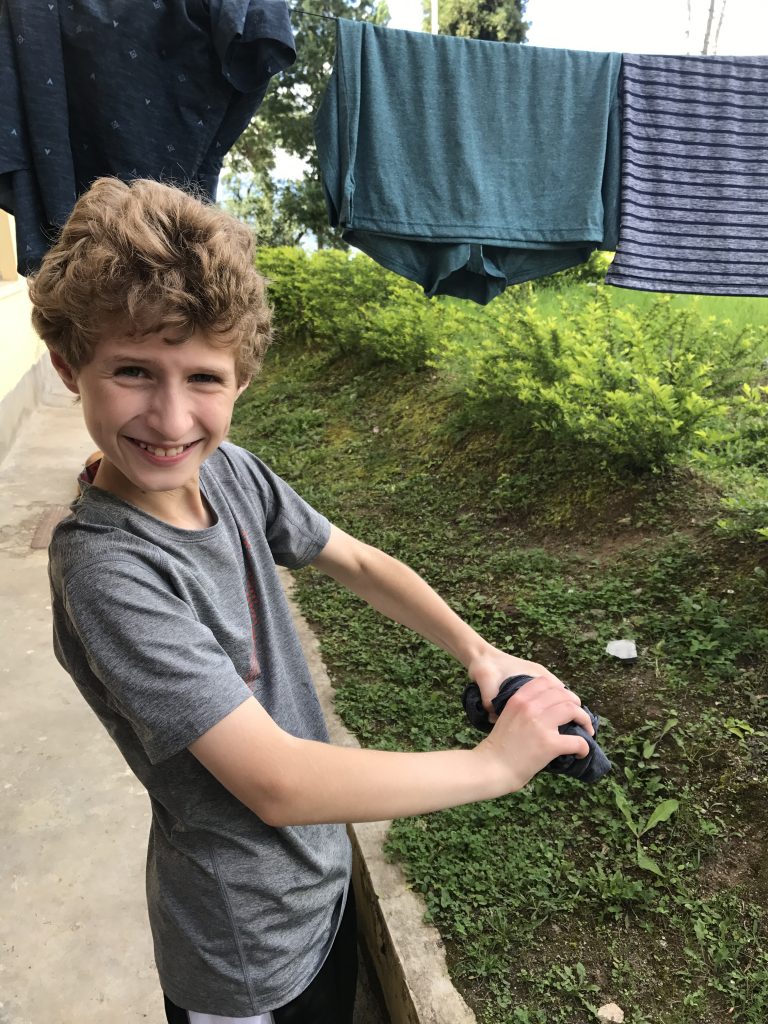
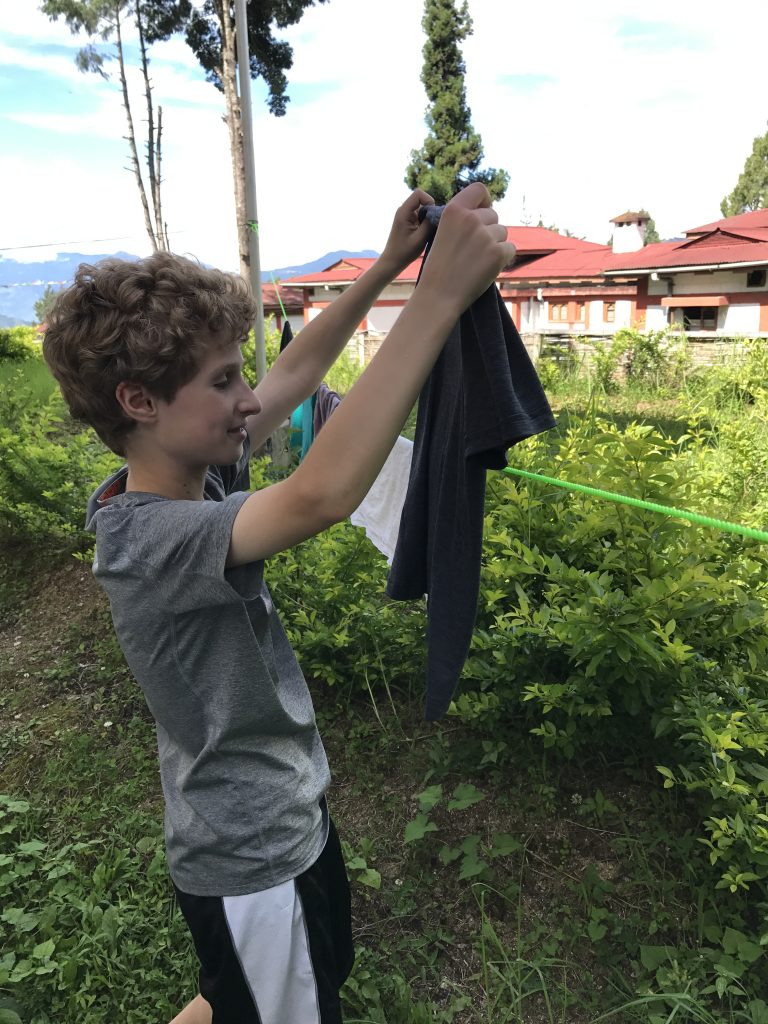
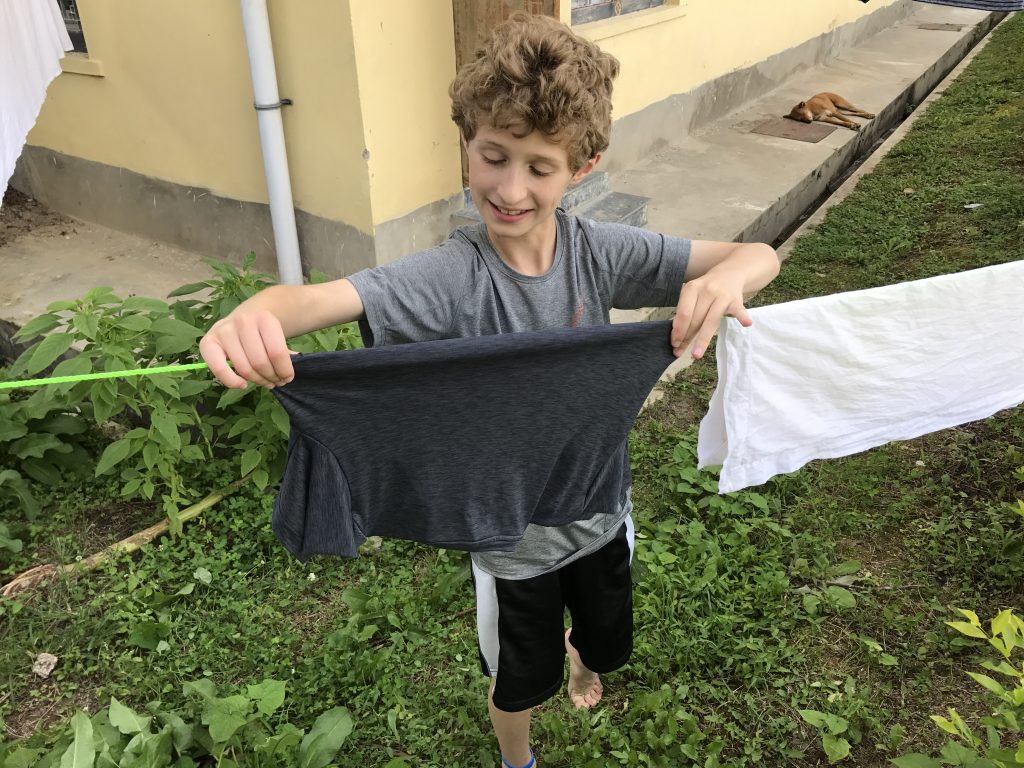
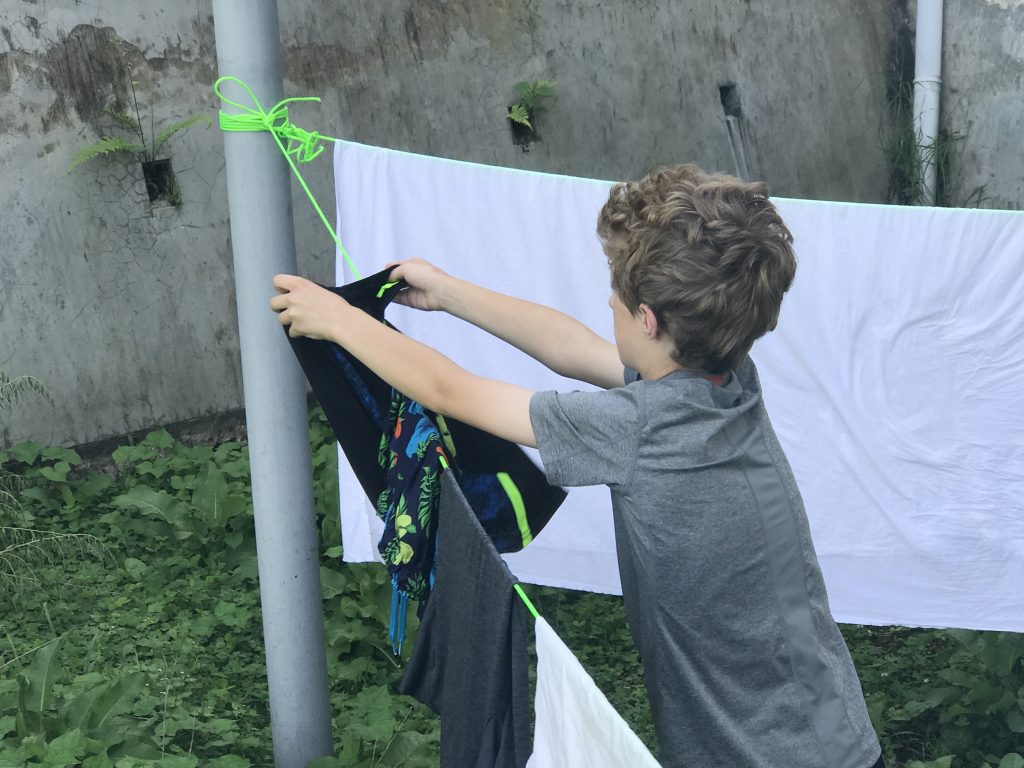
And bake bread for the family.

